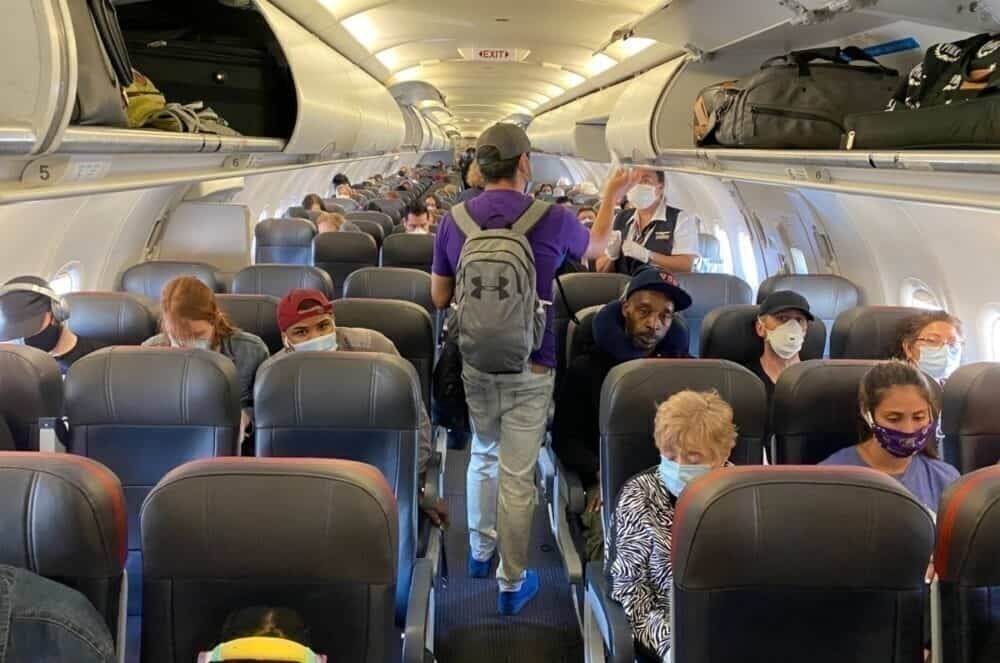
Executives from US airlines met with Vice President Mike Pence on June 26th over coronavirus-related travel concerns. One of the issues the airlines faced was the question of contact tracing. However, it appears that the administration and airlines have agreed to move for a third-party app and website to support contact tracing.
Using a third-party app and website for contract tracing
Via sources familiar with the issue, CNN reports that Vice President Pence was in support of a “compromise solution” for contact tracing that would see airlines use a third-party app and website. Previously, the government had sought for airlines to collect detailed information on passengers to turn over to public health officials if needed for contact tracing. This would have been a costly and difficult system for carriers with thousands of data points and plenty of strain on the airline’s booking systems.
Naturally, the airlines were not in support of having to store and find the data to turn over when necessary. Thus far, there has been no real solution for airlines when passengers turn out to be COVID-positive. And, with a connection-heavy US aviation market, this could be a problem across multiple flights, airports, and cities.

Using a third-party app would move the responsibility for storing the information away from the airlines. The third-party app and website would, per the report, only require five data points from passengers.
Growing concerns over getting sick on a plane
In the last month or so, plenty of stories have started to appear about passengers or crewmembers being sick on a flight. Tens of passengers tested COVID-positive on an Emirates flight. 16 passengers tested positive on a PIA flight heading to Copenhagen. Meanwhile, Delta faced some of its own issues with contact tracing when, in early May, the airline decided it would not notify passengers on the same flight as a man who later was identified to be COVID-positive. Other carriers have also faced similar concerns.

While most airlines around the world are mandating masks, they are not 100% effective. Passengers will remove them to eat and drink during the flight, and some may end up coughing or sneezing, thus spreading respiratory droplets that could spread the virus.
Introducing other measures
Airports, airlines, and governments around the world are starting to mandate temperature checks, while others are requiring coronavirus tests either at arrival or departure. However, the latter is far less common than the former two protocols. Airlines in the United States have supported temperature checks before departure.

Leading up to the meeting, airlines agreed to refund passengers who were denied boarding due to a high temperature. Some airports are adding a secondary screening with further medical consults before denying boarding to passengers with a high fever as there are other non-coronavirus reasons a person may have a fever. If airlines, airports, or governments do institute such policies, there might be additional pressure on them to add secondary screenings to ensure passengers are not prematurely denied boarding.
Do you think third-party contact tracing is a good idea? Let us know in the comments!